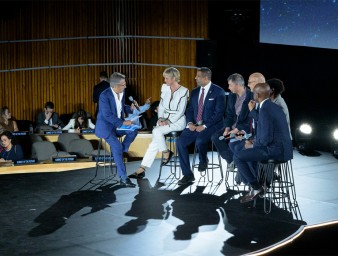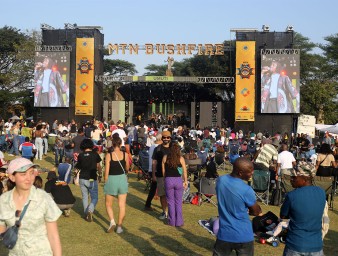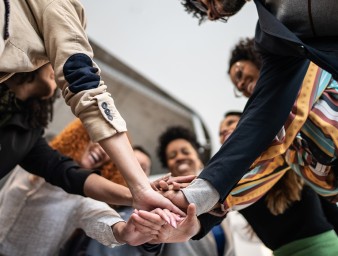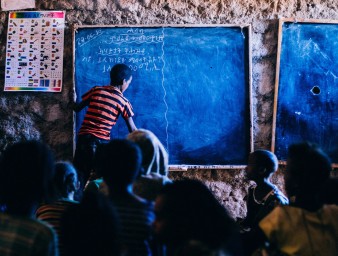Human rights are key to achieve SDGs
28 July 2023
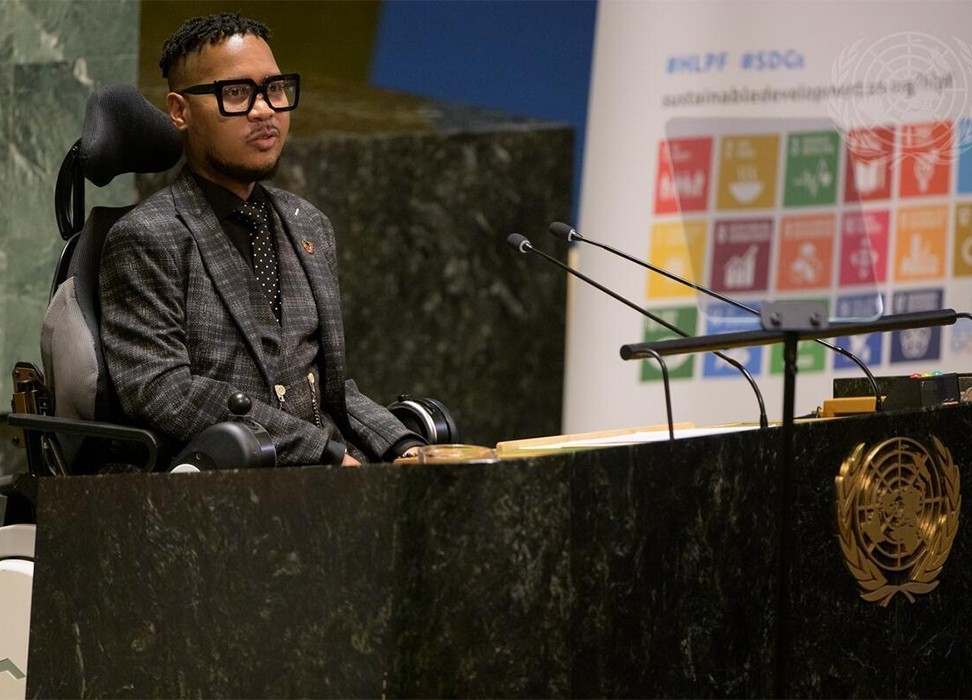
“Are we doing everything in our power to achieve the sustainable development goals (SDGs)” Edward Ndopu asked a room full of State representatives, civil society, academic, and UN leaders.
UN Assistant Secretary-General (ASG) for Human Rights Ilze Brands Kehris’ later response was simple:
“If we turn a blind eye to human rights, we are not.”
Ndopu, a United Nations SDG Advocate and youth representative, made his remarks during the opening of the High-level Political Forum (HLPF) on sustainable development, which took place from 10 to 19 July at the UN Headquarters in New York. This annual event brings thousands of officials and representatives from across the globe to share experiences and exchange lessons learned on implementing the 2030 Agenda.
With only seven years left to achieve the promise of the 2030 Agenda, and accelerate achieving the SDGs, this year’s HLPF and the upcoming SDG Summit provide pivotal opportunities to identify and embrace game changers and solutions, said Brands Kehris. Achieving the 17 SDGs on the basis of, and through, human rights is key, as “policies grounded on human rights build social justice, develop stronger economies and forge stability. They deepen trust and give hope,” she added.
Brands Kehris highlighted three “critical human rights levers” to step up SDG implementation at country levels: fulfilling the pledge to leave no one behind and reach the further left behind; empowering people as active agents of sustainable development; and working toward a human rights economy.
INCLUSIVE PARTICIPATION
“We need to give disadvantaged groups - including women and girls - a seat at the table. We know that for any policy to generate change, participation is a must to ensure that the lived experiences and recommendations of affected communities are heard,” she said.
Additionally, young people need to be invited to the decision-making table, where they can contribute valuable insights and innovations, said Ndopu.
“Young people hold unique perspectives, viewing the world through a lens of hope and possibilities,” he said.
BUILDING A HUMAN RIGHTS ECONOMY
“It is time to recognize that economic growth on its own will not redress structural injustices or fulfil people’s human rights. Our economies must deliver better results for people and our planet,” said Brands Kehris in advocating for a human rights economy.
Savi Bisnath, Senior Economist with the UN Human Rights’ Surge Initiative, invited representatives to join in an all-hands-on-deck push towards advocating for a human rights enhancing economy.
“Human rights economy centers on people’s human rights and the needs of our planet in social and environmental programs, projects, processes, and decision making,” she said. “It recognizes the indivisibility of rights.”
Bisnath emphasized that economic decisions, such as public budgets and investment choices, should aim to redress barriers to equality and be guided by human rights norms and standards.
BETTER PROTECTION THROUGH DATA
UN Human Rights also highlighted the vital role of data-driven policy-making. UN Human Rights is responsible for SDG indicator 16.10.1, which looks at the number of verified cases of killing, kidnapping, enforced disappearance, arbitrary detention and torture of human rights advocates, journalists, trade unionists, and others who stand up and defend human rights and development.
The UN, Member States and civil society organizations can use SDG indicator 16.10.1’s methodological and data collection framework, which draws on the fields of human rights monitoring and crime statistics, as a collaborative tool for integrating citizen-generated data and other non-traditional sources to expand the availability of disaggregated data on attacks. These are the data that are urgently needed to craft better protection responses and mechanisms for human rights defenders.
A more comprehensive data collection plays a crucial role in the protection of human rights defenders, said Katherine Liao, UN Human Rights officer.
"Accurate and comprehensive data collection on attacks, threats, and harassment against human rights defenders helps shed light on the extent of the problem and provides evidence to support advocacy for legal reforms that protect lives and ensure accountability,” she said.
ASG Brands Kehris said that the world is at a critical junction in terms of human rights and development. The Universal Declaration of Human Rights, which turns 75 this year, charted a path towards a more just, equal, and peaceful world, she said. Following this path needs to continue if the vision of the 2030 Agenda is to advance.
